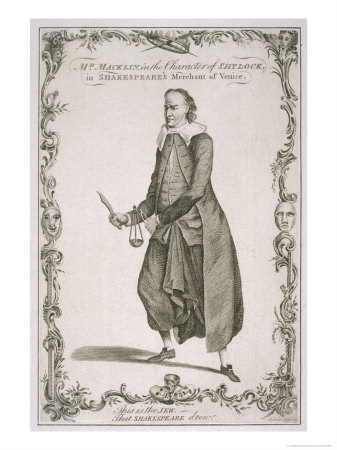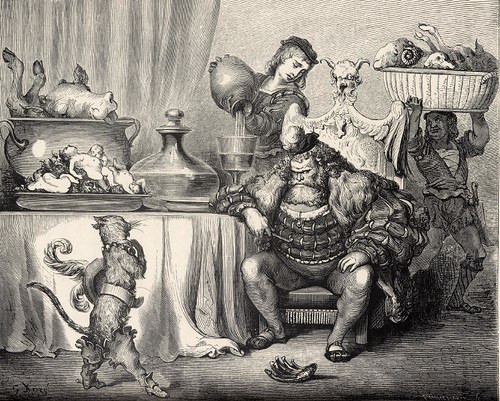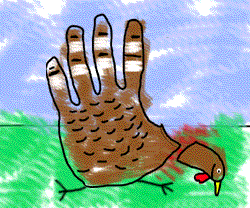 These days –but hasn’t it always been like that? -, when you get news about Haiti, it is always bad news: political unrest, hunger riots, gang violence... Then the earthquake, then the international help so disorganized that almost a year after the earthquake most of the population of Port-au Prince is still living into one of these tent slums…then the cholera and again, political instability. A doomed place, a living hell, that’s what Haiti looks like these days from the outside.
These days –but hasn’t it always been like that? -, when you get news about Haiti, it is always bad news: political unrest, hunger riots, gang violence... Then the earthquake, then the international help so disorganized that almost a year after the earthquake most of the population of Port-au Prince is still living into one of these tent slums…then the cholera and again, political instability. A doomed place, a living hell, that’s what Haiti looks like these days from the outside. And yet, what a great nation: Maroons Haitians led riots and battles against French soldiers and finally won their independence in 1804; the first independant Black-led country; then, they fought again against the French and Spanish that tried to submit the young nation. Its first Haitians rulers like Dessalines tried to build a democratic and egalitarian society. Haiti has also a rich literary history, both in poetry and fiction; authors like Jacques Roumain in his Gouverneurs de la rosée (1944) have given voice to the people of Haiti, exposing the injustices and cruelties of their society. And because of the long reign of the Duvaliers father and son, many Haitians intellectuals were forced to leave the country and build a new life in France, Quebec, or in the U.S, creating a literature of the diaspora.  Dany Laferriere is one of these intellectuals forced to live in exile (since 1976). Laferriere lives in Montreal and shares his time between writing articles for local newspapers, writing books and now directing movies. He became famous in the literary world in 1985 with his first provocative novel entitled Comment faire l’amour avec un nègre sans se fatiguer (how to make love with a nigger without getting tired) in which he was exploring the relationships between Whites and Blacks in Montreal and the way they dealt with sexuality. After this one he published more novels, some as provocative as his first one, some reflecting on the questions of identity and exile (themes also present in its first novel).
Dany Laferriere is one of these intellectuals forced to live in exile (since 1976). Laferriere lives in Montreal and shares his time between writing articles for local newspapers, writing books and now directing movies. He became famous in the literary world in 1985 with his first provocative novel entitled Comment faire l’amour avec un nègre sans se fatiguer (how to make love with a nigger without getting tired) in which he was exploring the relationships between Whites and Blacks in Montreal and the way they dealt with sexuality. After this one he published more novels, some as provocative as his first one, some reflecting on the questions of identity and exile (themes also present in its first novel). For some reason, I wasn’t really attracted to his writing (I had this image of a show-off kind of writer, the kind that would exploit trendy topics and styles to become famous) until he published in 2009 L’énigme du retour. Here, I have to say that I certainly behaved as the snobbish French I tend to be more than often since it is the fact that this particular book received the prix Medicis that made me change my mind about its writing. If it had received the Medicis, it certainly had something more interesting in it than des parties de jambes en l’air between Blacks and Whites! And indeed, it has. The novel is rooted in the Haitian experience of exile, loss of one’s self, guilt of having left, of not doing enough for those still living there…As a kind of exilée, I was particularly moved by some of Laferriere’s reflections on exile, like the following passage, where the ancient opposition between nomads and sedentary people appear to be still very alive and true:
“En fait, la veritable opposition n’est pas
entre les pays, si differents soient-ils,
mais entre ceux qui ont l’habitude
de vivre sous d’autres latitudes
(meme dans une condition d’infériorité)
Et ceux qui n’ont jamais fait face
à une culture autre que la leur.
Seul le voyage sans billet de retour
peut nous sauver de la famille, du sang
et de l’esprit de clocher. » As you can see from this excerpt, Laferriere has used a poetical prose to tell about his loss ; for those of you familiar with the French Martiniquais writer Aime Césaire, it certainly reminds you of his masterpiece Cahier d’un retour au pays natal (1943), entirely written in a poetical prose very influenced by Surrealism. The topic is also similar, since Césaire was describing the conflicting feelings of a Martiniquais young man going back to his island after having studied in Paris. In Césaire’s poetry, the topics of alienation and anger against the White oppressor were mixed with an ode to his own Creole culture, as if the exile had made him aware of the beauty and richness of his island and its people. So, Laferriere’s style is not unique but it is still a powerful device to move his readers and tell his story.
Because a story it is: the narration is mostly linear, with some reminiscences from childhood or other past times. The narrator- the author’s literary twin- is awaken in his sleep by a phone call from a hospital in the Bronx letting him know that his estranged father has just died. Then the literal and psychological journey of the narrator begins; first, he drives to a remote place in Quebec, to try to see one of his friends; then he takes the train to New-York to see to his father’s funerals and then, finally, he feels the urge to go back to Haiti and to his father’s native village. En route, he meets with some of his father’s old friends, then his mother, sister and young nephew still living in Port-au Prince and also with some Voodoo powerful spirits.
One of the main strings of the novel is the son’s attempt to reconcile with the figure of his estranged father: we don’t learn much about him, only bits and pieces that give us the portrait of an intellectual who fled Duvalier’s dictatorship, living behind him a wife and children who barely knew him. Then, living in New-York, he seems to have turned into a kind of hermit, even refusing to meet his adult son. And yet his friends speak highly of him, making it even more difficult for the narrator to come into terms with his grief and loss.
The first part of the novel is mostly self-centered, the narrator being absorbed in his anger and grief and reflections on exile; while in the second part, he opens up to the Haitian reality, reconnecting with his native land. Here Laferriere’s poetical prose beautifully and painfully describes the Haitian’s hardships , like in the pages where Laferriere sees every morning, from the window of his hotel room, in the slum perched on the hill facing his room, a very young girl, always the first awaken, setting up the fire for the first meal of the day. This young girl, modern Sisyphus condemned to a life of poverty and violence with not much of a prospect, where is she now? Did she survive the earthquake?
Here is one of Laferriere’s talents in this book: making his characters very alive but without the heaviness of social realism. On the contrary, his poetical prose enables him to draw his characters and the places he visits, in a kind of Impressionist way: with small strokes of ink, of words:
“La nuque fragile
des jeunes femmes
contraste avec
leurs mains calleuses.
C’est toujours la main
qui révèle nos origines sociales »
Or this, when he is in the Haitian countryside:
« La démarche indolente
d’une vache
à sa promenade du soir.
La nuit devient
Day after day, the narrator seems to “reroot” himself to his country, its pace and traditions. To the point that he finally reaches the end of his physical and spiritual journey.
L’enigme du retour is an essential reading for anyone who wants to understand the Haitian people whether in Diaspora or in Haiti. That is the splendor of literature: it drags you into someone else’s existence as no non-fiction book or documentary will ever be able to do.















